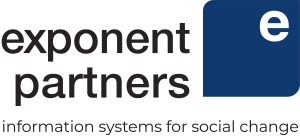Grantmaking Best Practices for 2023
As the charitable sector grows, grantmakers face increasing competition to attract and support the right recipients and nonprofits. In order to keep up with the latest trends and needs of the nonprofit sector, grantmaking best practices are constantly evolving. This makes it essential for grantmakers to keep their processes and practices up-to-date.
But what does it take to be a great grantmaker? And why is it so important for them to implement the latest grantmaking best practices?
This article will cover actionable tips on how to improve your grantmaking strategies. We’ll also explain how Exponent Partners’ grant management software can help you streamline your processes, attract more applicants, and ultimately achieve greater impact.
Competition Within The Nonprofit Market
With the increasing number of nonprofits and the limited funding available, nonprofit organizations are constantly competing with each other for resources, including funding, volunteers, and partnerships. This competition is further exacerbated by the emergence of new social and environmental challenges that require more resources and attention from the nonprofit sector.
With a growing number of nonprofits vying for limited funding opportunities, grantmakers are faced with the challenge of identifying the most effective organizations and programs to support. In addition, the COVID-19 pandemic has further intensified the competition for funding. Many nonprofits are struggling to meet the increased demand for their services while facing decreased funding opportunities.
And that’s why the role of a grantmaker is so important.
6 Characteristics Of A Good Grantmaker
But what does it take to be a good (and great) grantmaker? Here are some characteristics:
1. Clear mission and values
A good grantmaker should have a clear and well-defined mission and values that guide their grantmaking practices.
2. Responsive and approachable
A good grantmaker should be responsive to inquiries and approachable to potential applicants. They should provide clear and transparent guidance on their grantmaking process and priorities.
3. Strategic and innovative
A good grantmaker should implement a strategic roadmap around their grantmaking practices. They should seek out innovative and effective programs and nonprofits that align with their organization’s mission and values.
4. Collaborative
Fostering collaboration among grantees and other stakeholders is crucial to building strong partnerships and maximizing impact in the nonprofit sector.
5. Flexible and adaptable
A good grantmaker should be able to respond quickly to changing circumstances and emerging needs in the nonprofit sector.
6. Transparent and accountable
Transparency and accountability are key characteristics of a good grantmaker. They need to provide clear and accessible information on their grantmaking process, priorities, and outcomes.
The Importance Of Good Grantmaking Practices
Without the correct funding, nonprofits aren’t able to carry out their projects and initiatives. This can be especially important for smaller or newer organizations that may not have access to other sources of funding.
But with the right practices in place, grantmakers help maximize the impact of funding by supporting the most effective programs. With effective grantmaking practices, nonprofits have access to the resources they need to achieve their mission and make a meaningful impact in their communities. Some areas they can help address include:
- social justice
- education
- healthcare
- environment
Efficient grantmaking can also support innovative approaches and ideas that may not have been tried before. By taking risks and supporting new and untested approaches, grantmakers can help drive innovation and progress in different fields.
5 Grantmaking Best Practices
Here are some actionable tips on how to improve your grantmaking process and strategies.
1. Streamline the application process
One of the most important best practices for grantmakers is to streamline the application process for applicants. This can be achieved by using online portals or software that makes it easy for applicants to apply and for grantmakers to review applications.
The online portal should be user-friendly and provide detailed instructions on how to complete the application process. Additionally, grantmakers should consider using a common application form that is widely recognized and accepted by nonprofits.
Exponent Partners offers a suite of grant management solutions that help grantmakers streamline their application process, making it easier for nonprofits to apply and for grantmakers to review applications. Our solutions also allow grantmakers to customize their application process to meet their specific needs, ensuring that the right information is captured in a timely and efficient manner.
2. Foster collaboration
Collaboration among nonprofits can lead to greater impact and more efficient use of resources. This can be achieved by encouraging grantees to work together on joint projects or by hosting networking events that bring together nonprofits from different sectors.
Grantmakers should be able to easily communicate with their grantees and other stakeholders through a platform. This encourages the sharing of ideas, resources, and best practices, ultimately leading to more efficient and effective use of grant funds.
3. Use data to drive decision making
Data is increasingly becoming a critical factor in grantmaking decisions. Grantmakers need to assess the impact of their grants and the effectiveness of their grantmaking processes. This will help grantmakers make calculated, informed decisions about where to allocate funds.
Exponent Partners offers data management and analytics solutions that allow grantmakers to collect, store, and analyze data on their grantees, grants, and impact. Our solutions can help track your progress toward your goals and measure the effectiveness of your grantmaking efforts.
4. Encourage Diversity, Equity, and Inclusion (DEI)
Grantmakers should make a concerted effort to promote diversity, equality, and inclusion (DEI) in their grantmaking practices. This ensures that all nonprofits have an equal opportunity to apply for and receive funding.
Grantmakers should ensure that the grant application process is accessible to all and that their charitable organization is actively seeking out and supporting nonprofits that promote DEI.
5. Continuous learning and improvement
Finally, grantmakers should be committed to continuous learning and improvement. This can be achieved by:
- Soliciting feedback from grantees and other stakeholders
- Conducting regular evaluations of their grantmaking practices
- Staying up-to-date with the latest trends and best practices in the nonprofit sector
Harness The Power Of Technology For Effective Grantmaking
Grantmakers have the daunting task of managing large amounts of data related to projects, grantees, donors, and other stakeholders. But just as in many other industries, technology has become an increasingly important tool to turn manual tasks into streamlined processes.
At Exponent Partners, we’re dedicated to (and a bit obsessed with) making grantmakers’ lives even easier through technology. Integrated with Salesforce, our grant management solutions provide grantmakers with the tools they need to track and continuously improve their grantmaking practices. And if you’re a bit apprehensive about using new technology with your team, don’t worry. We also provide training and ongoing support to help you get the most out of our technology solutions.
Ready to take your grantmaking process to new heights? Get in touch with our team and let us advise you through your organization’s change management every step of the way.

